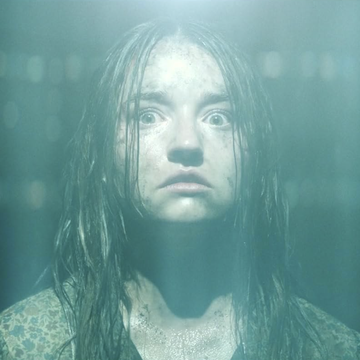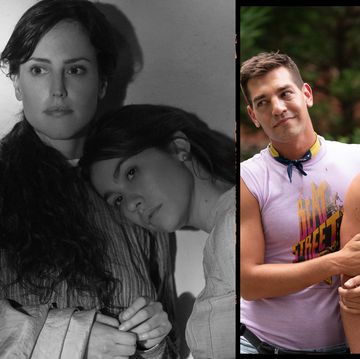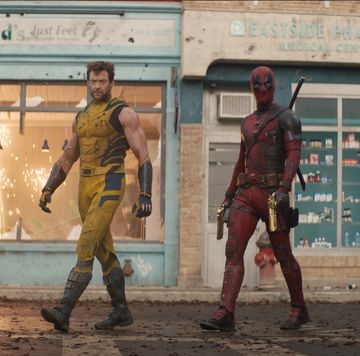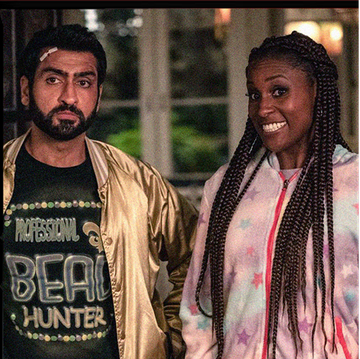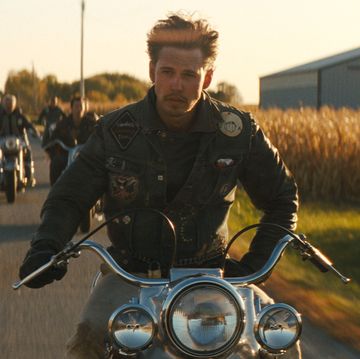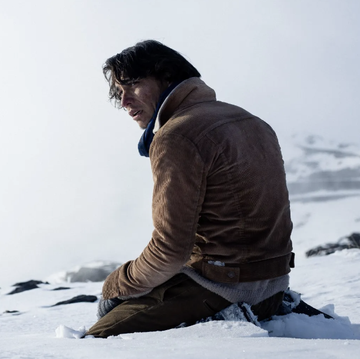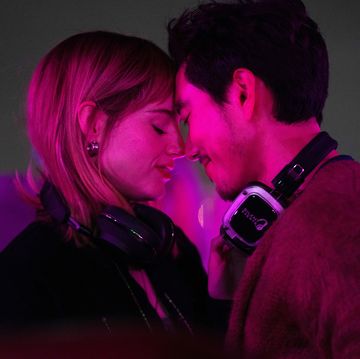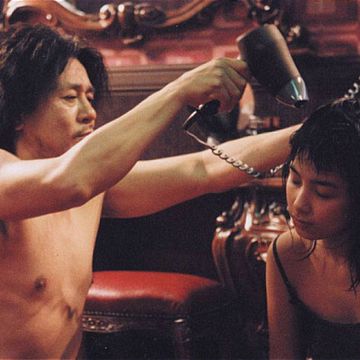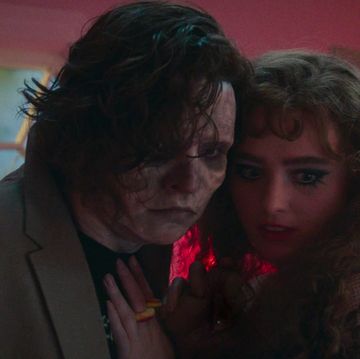In February 2012, the game manufacturer Capcom sponsored online reality show Cross Assault, in which two teams of five faced off in rounds of crossover fighting game Street Fighter x Tekken. Team Street Fighter and Team Tekken each had a coach to guide them through practices in preparation for the elimination matches. Team Tekken's coach was competitive gamer Aris Bakhtanians; one of his team members was Miranda Pakozdi, the only female on the team. During the competition, a video surfaced of Bakhtanians harassing Pakozdi at a practice session. Responding to live-stream viewers, he recorded and streamed footage focusing on her breasts and feet, asked her to take off her shirt, and smelled her hair while she was playing. When criticized for his actions, Bakhtanians responded, "This is a community that's, you know, 15 or 20 years old and the sexual harassment is part of a culture."
Shannon Sun-Higginson (pictured below) saw the video and that weekend, began filming her documentary GTFO: Get the F% Out, which reveals how pervasive misogyny is in the gaming industry on all levels, surfacing among those who create, market, and play games. Cosmopolitan.com spoke to Sun-Higginson after a screening of her documentary at SXSW.
You were inspired to make this documentary after watching a video of gamer Miranda Pakozdi getting harassed by her teammates. Had you been aware of harassment in the gaming community before?
To this day, that remains the most shocking video [I've seen] — well, no, actually, that's not even true. But I actually didn't know anything about it before I saw that Cross Assault video, and I started shooting the movie that weekend. So it accelerated pretty quickly. At the beginning, I just wanted to film it. I didn't really know what it was going to be, but it was going to be focused on harassment. And then we realized that women had so many different experiences, so it's not fair to just make a movie about women and gaming and getting harassed. We wanted to explore the cultural implications and reasons behind that harassment, and not just say, like, "This is harassment! This is what's happening!"
Did you have any experience at all with gaming or were you totally new to the whole thing?
I played games as much as anyone in my generation, so I played Mario Kart and Super Smash Brothers as a kid, and Zelda — but no, I wasn't in any way part of that community. Any games I'd played as a kid were just with my friends and I didn't really think about them too much; I didn't really analyze them. Actually, ironically, making this movie made me much more interested in playing games because I realized that there are so many genres that are possible, an unlimited, untapped creative world.
Did being an outsider to the gaming world create any challenges for you?
Yeah, definitely. The disadvantage is that I didn't innately know who to talk to. I had to get help from two of my good friends, who are men, who are gamers. [They] were the first to put me in touch with some of the more mainstream, famous women in games. They let me know who to talk to in the beginning and from there, it was a very organic process where one woman would say, "Oh, my friend is really good at talking about this," and she would refer me to her and put me in touch, and then from there, it just sort of snowballed and escalated.
Was there anyone who had a negative response to the film or people who were afraid to be filmed?
I was really surprised to find that almost nobody turned me down for an interview. I think the whole time I was only turned down once. And I think it's because these women do want this story to be told. I expected them to be a lot cagier than they were. I thought I would try to be really delicate and sensitive and not push any issue, and if somebody didn't want to talk to me, I didn't want to hound them too badly. But they were actually much more willing and much more forthcoming than I ever could have expected, and I think that it's just because they're total badasses.
Someone in the movie said, "The treatment of women in games is the reflection of society in general, not just gaming society." How has it perpetuated for so long and why are people doing something about it now?
Women in gaming is the most current and salient example of a new group coming into an industry and the people who are already there rejecting or ostracizing them. It's something that's happened throughout history. Women in gaming: We're just sort of using it as a microcosm for something that has happened and will continue to happen when somebody comes in and says, "I love this thing," and the people who are already there say, "We don't want you here." So I guess it's coming to a head now because games are a multibillion dollar industry, because the percentage of women is going up, because nerd culture is becoming much more mainstream and people feel like that's something that they want to hold on to that makes them different from everybody else. I mean, there are so many things that came together that resulted in this current implosion, this current clusterfuck. But it has happened and will keep happening in lots of other industries, unfortunately. Until there's actually equality.
The movie only premiered on Saturday, but have you been getting any harassment yourself?
During the Kickstarter, I had some messages, like, "Oh, this movie is stupid," but they hadn't seen the movie; it didn't exist yet. So I wasn't too worried about that. [I got] a few Twitter messages that the Twitter community just immediately shut down. People came to my defense much faster than I expected. I think maybe because I'm an outsider, because I'm a filmmaker, I'm not really seen as trying to intrude in the industry, but then again, harassment seems totally random. So I guess at any point, it could happen to me. I just can't worry about that. I'm not worried about myself. I'm much more worried about the women in the movie and, I mean, it's already out. They can't bully me into not releasing it. If they're smart, they probably realize that any harassment toward me is just going to be free publicity.
Follow Heeseung on Twitter.



